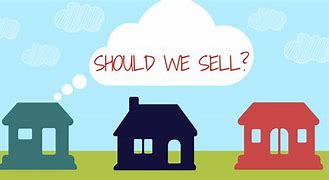 There’s a lot more to selling a property than having a good photo shoot and make timing for open inspections.
There’s a lot more to selling a property than having a good photo shoot and make timing for open inspections.
Whether it is your home or investment property, deciding to sell a property is a major financial decision. Here’s some hints on how best to get your home ready how to get your home ready before it goes under the hammer:
- Choosing a Real Estate Agent
Finding the right real estate agent is like getting a good advisor – they’re on your side and will help get you the best outcome.
Your real estate agent is in charge of listing and marketing your home, negotiating with potential buyers, navigating all the paperwork and of course, achieving the sale.
It’s often best to choose an agent who specialises in your area; they’re familiar with the neighbourhood, its amenities and demographic. Sourcing a few quotes is a good idea too as commissions and rates vary.
- Instructing a Conveyancer or Solicitor
Once the decision is made to place the property on the market, your will need to engage a lawyer or conveyancer to assist with completing the preparation of a contract of sale and collect relevant disclosure documents that are likely to include the following:
- This lets the buyer know what the property can be used for – residential or commercial purposes.
- Certificate of Title. Proof the property is in your name and you are legally allowed to sell. It also gives a detailed description of the property.
- This provides information on the rates payable on the land.
- Building permits. You must disclose any building permits that have been issued within the last seven years.
- Bushfire danger. Is the property in a bushfire-prone area?
- Previous works. What structural works/renovations have been carried out on the property?
- Repair, renovate or remain?
In most instances, you will need to spend money on your property prior to listing. So depending on your home’s structure, age and condition, you may need to dip into your savings and carry out some works.
The purpose of renovating is to attract more buyers. It is important not to over-capitalise, so keep things simple. Often, a fresh coat of paint, some new light fittings and a tidy garden will do the trick.
- Selling at private sale or auction
This is a personal choice and something you need to obtain advice from your real estate agent – the aim is to sell at the best price.
A private sale is when a property is listed through an agent with an asking price, and interested parties can make an offer. The agent then presents the offer to the vendor, and they can decide to accept or not.
An auction is a live sale, held at the property after a marketing campaign. It’s hosted by an auctioneer and encourages a competitive bidding war. At auctions, sellers also have the protection of a reserve price – the lowest amount they’re willing to sell for.
- Choosing a sale price
Most owners will have a emotional attachment to their property which influences what their property is worth is worth. This is when you’ll need to rely on the expertise of your real estate agent.
Factors that have a play into what a property could be worth include:
- Suburb
- Current market conditions
- Interest rates
- Property size
- Property condition
- Property features
Requesting property reports is another useful guide as to what your property could be worth. These reports contain property information, property history, suburb trends, nearby sale prices and neighborhood demographics.
Advertising campaign
Investing in a solid advertising and marketing campaign is a selling must. Its purpose is to not only attract (the right) buyers but also sell your property at a profitable price.
Your budget may dictate how far you will go, however, good photography, online listings and an auction board should be on your list.
Your real estate agent will advise you on the best strategy for your property.
From the decision to sell to the settlement day, there are many steps to selling property. By knowing what s involved early, you will be better prepared to achieve a sale at the best possible price.
